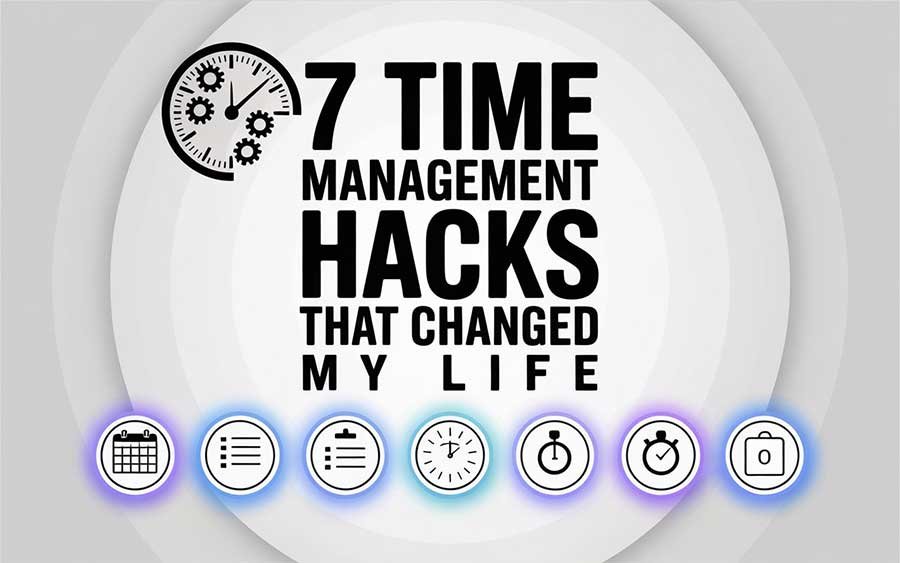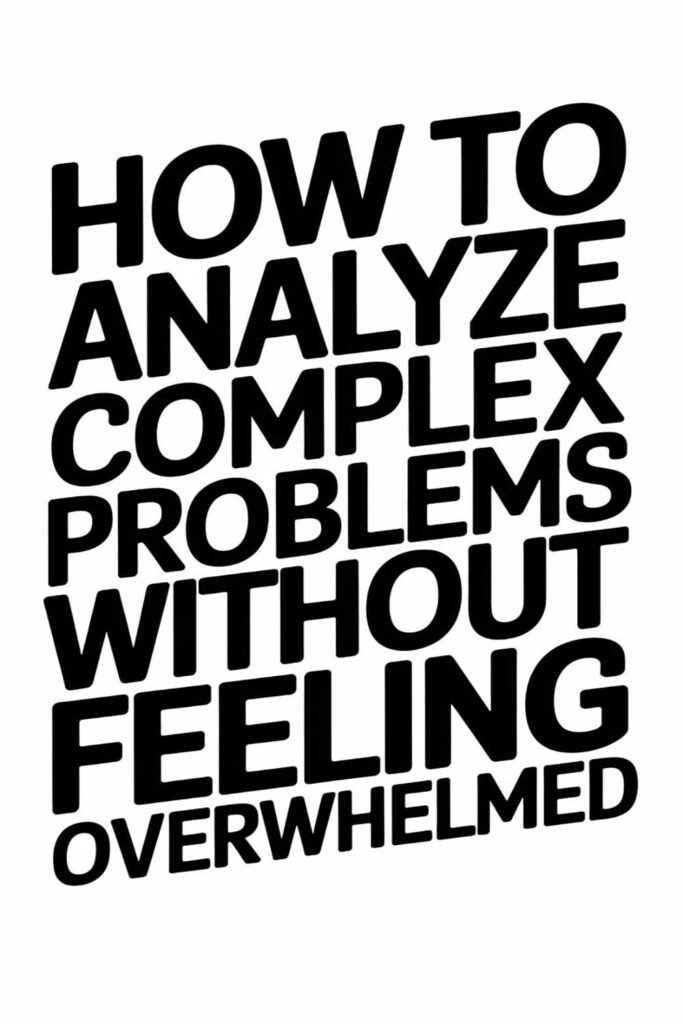
7 Time Management Hacks That Changed My Life: Reclaiming Your Most Valuable Resource
In today’s fast-paced world, time feels like a relentless current, pulling us from one obligation to the next, often leaving us feeling overwhelmed, drained, and perpetually behind. We juggle work, family, social commitments, and personal aspirations, all while the clock keeps ticking. “I just don’t have enough time” has become a common mantra, a resignation to the perceived scarcity of our most precious resource. But what if the problem isn’t the amount of time we have, but how we manage it? Understanding what is time management and why it matters is the first step towards reclaiming control.

For years, I felt like I was constantly reacting to life, bouncing from one urgent task to another. My to-do list was a monster that only grew larger, and stress was my constant companion. Then, I began to experiment with various time management strategies, not just as productivity tricks, but as fundamental shifts in how I approached my day. These weren’t just quick fixes; they were hacks that genuinely changed my life, allowing me to achieve more, feel less stressed, and finally carve out space for what truly matters.
The Illusion of Busyness: Why We Struggle with Time
Before diving into the hacks, let’s acknowledge why time management often feels like an uphill battle:
- Distraction Overload: Our digital world is designed to grab and hold our attention, creating an endless stream of interruptions. Identifying the biggest time wasters you don’t even notice is crucial for regaining focus.
- Lack of Clarity: Without clear priorities, we often mistake activity for productivity, spinning our wheels on tasks that don’t move us forward.
- Poor Planning: Reacting to demands rather than proactively scheduling time sets us up for constant urgency.
- Overcommitment: Saying “yes” too often, fearing missing out, or underestimating how long tasks take can quickly overload our schedules.
- The Myth of Multitasking: Our brains are not designed for true multitasking; rather, we rapidly switch contexts, losing efficiency with each jump.
These habits create an environment where time slips through our fingers like sand. The hacks below are designed to plug those leaks and create a more intentional flow.
7 Time Management Hacks That Transformed My Life
These aren’t necessarily revolutionary concepts, but their consistent application has been nothing short of transformative.
1. The Power of the “Big Rocks First” Principle
This hack, popularized by Stephen Covey, emphasizes prioritizing your most important tasks (your “big rocks”) and scheduling them first.
- The Hack: At the start of each week or day, identify 1-3 absolutely critical tasks that, if completed, would make the day or week a success, regardless of anything else. Schedule time for these first, before checking emails, attending non-essential meetings, or diving into smaller tasks.
- Real-Life Example: I used to start my workday by checking emails, which would immediately pull me into reactive mode. Urgent-sounding (but often non-critical) requests would dictate my morning. After implementing “Big Rocks First,” I started dedicating my first 90 minutes to my most impactful project, uninterrupted. I found that even if the rest of the day got chaotic, I had already moved the needle on what truly mattered. This shift allowed me to make significant progress on my book, which had been stalled for years, simply by prioritizing its dedicated writing time before anything else.
2. Time Blocking with Intent
Beyond just a to-do list, time blocking involves scheduling specific blocks of time for specific activities.
- The Hack: Look at your week or day and literally block out segments for different types of work (e.g., “Deep Work on Project X,” “Email Response,” “Meetings,” “Admin”). Treat these blocks like non-negotiable appointments. Consider exploring the best time blocks for maximum focus and energy to optimize this strategy.
- Real-Life Example: My freelance work involves a mix of client calls, content creation, and administrative tasks. Without time blocking, these would bleed into each other, leading to constant context switching. By assigning specific 2-hour blocks to “content creation” and 1-hour blocks to “client communications,” I reduced mental fatigue and increased my output. I found I could accomplish in two focused hours what used to take four, simply by eliminating distractions and the decision-making around what to do next. This structured approach greatly improved my overall time management.
3. The Two-Minute Rule
If a task takes less than two minutes, do it immediately.
- The Hack: This hack, from David Allen’s “Getting Things Done,” prevents small tasks from piling up and becoming overwhelming mental clutter. Email responses, quick phone calls, putting away dishes, filing a document – if it’s under two minutes, tackle it on the spot.
- Real-Life Example: My desk was always a mess, and my inbox was perpetually overflowing with small, quick-response emails. Each accumulated item felt like a weight. Applying the Two-Minute Rule meant that as soon as an email came in that I could answer quickly, I did. If a bill arrived, I paid it. If a dish was in the sink, I washed it. This significantly reduced my “mental load” and freed up energy for bigger tasks. It also meant I rarely had to dedicate large blocks of time to “catching up” on administrative minutiae.
4. Batching Similar Tasks
Group similar tasks together and do them all at once.
- The Hack: Instead of checking emails every 15 minutes or making phone calls throughout the day, dedicate specific times to these activities. Reply to all emails at 10 AM and 3 PM. Make all your necessary phone calls back-to-back. Run all your errands in one trip.
- Real-Life Example: For years, I’d interrupt deep work to answer a quick email, then go back to my project, then get a notification, and so on. The constant switching was exhausting. By batching email checks and social media interactions to just two specific times a day, my focus dramatically improved. I found I could produce higher-quality work because my brain wasn’t constantly resetting. This also applies to administrative tasks; tackling all my invoicing and record-keeping for my business in one block (similar to 8 money management tips for freelancers and entrepreneurs principles) made me far more efficient.
5. The “No” Principle (Strategic Refusal)
Learning to say “no” is one of the most powerful time management tools, freeing up time for your true priorities.
- The Hack: Before committing to anything new (a meeting, a favor, a new project), pause and consider if it aligns with your goals and current capacity. If it doesn’t, politely but firmly decline. Remember, saying “no” to one thing is saying “yes” to something else important.
- Real-Life Example: I was a classic people-pleaser, always saying “yes” to extra committee work, social invitations, or favors, even when my plate was overflowing. This led to burnout and a feeling of being constantly stretched thin. The “No” Principle changed this. I started asking myself, “Does this serve my core goals or values?” If not, I’d politely decline or offer an alternative. It was hard at first, but the immediate sense of reclaimed time and reduced stress was invaluable. This allowed me to prioritize my well-being and high-impact work, rather than just filling my schedule.
6. The “One-Touch” Rule for Information
Process information immediately rather than letting it sit.
- The Hack: When an email, physical mail, or new piece of information comes into your space, deal with it immediately with one of four actions:
- Do it: If it’s a 2-minute task.
- Delegate it: If someone else should handle it.
- Delete it: If it’s junk or no longer relevant.
- Defer it: If it requires more time, add it to your to-do list or calendar with a specific action date/time.
- Real-Life Example: My physical and digital inboxes used to be graveyards for information. Bills would sit in piles, emails would get buried. This created anxiety and often led to missed deadlines. Implementing the One-Touch Rule for mail, for example, meant opening it immediately, either acting on it (paying a bill), filing it, or discarding it. My space became cleaner, my mind clearer, and I rarely missed a deadline due to lost information. This is also useful if you’re exploring 12 ways to make extra money online in your free time as it helps you manage new streams of information efficiently.
7. The Power of Strategic Breaks
It might seem counterintuitive, but taking intentional breaks can dramatically improve your focus and overall productivity.
- The Hack: Don’t just push through until burnout. Schedule short breaks (5-15 minutes) every hour or two. Get up, stretch, walk away from your screen, grab water, or do something completely unrelated to work.
- Real-Life Example: My previous approach was to work straight through for hours until I felt completely exhausted and unfocused. I’d then crash. By adopting a system of timed work sprints (e.g., 50 minutes of focused work, 10 minutes break), my energy levels remained higher throughout the day. These strategic breaks allowed my brain to rest and consolidate information, leading to sustained focus and better decision-making. I felt less drained at the end of the day and had more energy for my personal life.
Implementing Your Own Time Management Revolution
These hacks aren’t a magical cure-all, but they are powerful levers you can pull to regain control of your time and, by extension, your life. Start small. Pick one hack that resonates most with you and commit to trying it consistently for a week. Once it becomes a habit, introduce another.
Time isn’t just about efficiency; it’s about intentionality. By managing your time effectively, you’re not just getting more done; you’re creating space for what truly matters to you – your well-being, your relationships, your passions, and your personal growth.
Reclaim your time. Reclaim your life.
20 Empowering Quotes on Time Management and Productivity:
- “Lost time is never found again.” – Benjamin Franklin
- “The bad news is time flies. The good news is you’re the pilot.” – Michael Altshuler
- “It’s not enough to be busy, so are the ants. The question is, what are we busy about?” – Henry David Thoreau
- “You may delay, but time will not.” – Benjamin Franklin
- “The way we spend our time defines who we are.” – Stephen Covey
- “Lack of direction, not lack of time, is the problem. We all have twenty-four hour days.” – Zig Ziglar
- “Don’t say you don’t have enough time. You have exactly the same number of hours per day that were given to Helen Keller, Pasteur, Michelangelo, Mother Teresa, Leonardo da Vinci, Thomas Jefferson, and Albert Einstein.” – H. Jackson Brown Jr.
- “Either you run the day, or the day runs you.” – Jim Rohn
- “The key is not to prioritize what’s on your schedule, but to schedule your priorities.” – Stephen Covey
- “Time is what we want most, but what we use worst.” – William Penn
- “Concentration is the root of all the higher abilities in man.” – Bruce Lee
- “The difference between successful people and very successful people is that very successful people say ‘no’ to almost everything.” – Warren Buffett
- “Efficiency is doing things right; effectiveness is doing the right things.” – Peter Drucker
- “Most people overestimate what they can do in one year and underestimate what they can do in ten years.” – Bill Gates
- “You don’t need more time, you just need to decide.” – Seth Godin
- “The best time to plant a tree was 20 years ago. The second best time is now.” – Chinese Proverb (Applies to starting time management!)
- “Work smarter, not harder.” – Allen F. Morgenstern
- “Until we can manage time, we can manage nothing else.” – Peter Drucker
- “The successful warrior is the average man, with laser-like focus.” – Bruce Lee
- “If you want to make an easy job seem hard, just keep putting off doing it.” – Olin Miller
Picture This
Imagine your day is a jar, and you have a pile of rocks, pebbles, and sand. The “big rocks” are your most important, high-impact tasks. The pebbles are moderately important tasks, and the sand is the endless stream of small distractions and interruptions. If you put the sand in first, then the pebbles, you’ll never have room for the big rocks. But if you put the big rocks in first, then the pebbles, and finally the sand, everything fits. Your time is the jar, and these hacks are the strategy for ensuring your most valuable rocks – your priorities and goals – always get the space they deserve.
Share This Article
Did these time management hacks spark new ideas for you? Share this article with friends, family, or on social media to help others reclaim their time and live more intentionally!
Disclaimer
This article is intended for informational purposes only and is based on general productivity principles and common experiences. It is not a substitute for professional advice, diagnosis, or treatment for specific issues related to time management or mental health. If you are experiencing severe or persistent challenges with productivity or mental well-being, please consult with a qualified professional.






